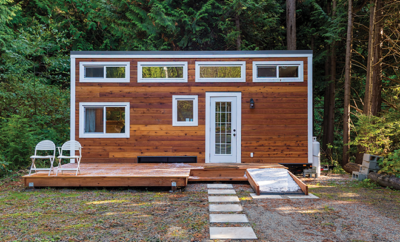
Home Ownership Perks: Exemptions, Credits and Grants
Home ownership is part of our American dream. It’s a reward for hard work, frugal living and the path to a better life for our families.
However, it always comes with associated costs. The median property tax paid in the U.S. is approximately $2,000, or 10 percent of the median value of a $200,000 home. Federal, state and local entities provide numerous exemptions, grants and programs to assist the homeowner with the costs associated with obtaining, maintaining and upgrading a home. Some are simple to obtain; others require waiting and paperwork, but for many, the time and energy invested in locating this monetary assistance is worth the effort
Property Tax Exemptions
The homestead exemption is the most widely known and used; it reduces property taxes on your home by removing part of the value of the property from taxation. For example, if your home is valued at $200,000 and you qualify for a $40,000 exemption, you pay taxes on your home as if it were assessed at $160,000. If you’re a first-time buyer, your Realtor or closing agent should bring this to your attention. It’s as simple as making application at the agency that collects your property tax; they can also tell you if you qualify for additional exemptions.
Many states offer exemptions for disabled persons and seniors; some provide for refund of property taxes, others for reduction of the assessed value. Read the fine print and don’t assume a result. An exemption aimed at older homeowners may only defer property taxes until the property is sold.
More than half of the states offer an exemption that reduces or eliminates property taxes for qualified veterans. Some states offer exemptions to all veterans; others target disabled veterans. “If you’re a disabled veteran, in almost every single jurisdiction, you can petition your local taxing authority and you can have all of your local real estate taxes waived,” said Mike Frueh, national director of the VA Home Loan program. “That’s a fantastic benefit.” Exemptions range from partial to full exemptions; disability rating and income requirements typically apply. A listing of states offering exemptions and the parameters can be found at veteransunited.com. In addition, parents and surviving spouses of disabled service members may qualify for exemptions.
Qualifying persons with disabilities generally must provide documented evidence of their disability and meet ownership and income requirements. Depending on the state and municipality, an exemption may be as much as 50 percent of the value of the home. Again, check with the local tax assessor or city clerk to verify what’s available.
In some states, renovations on older homes may qualify or even exempt the homeowner from property taxes for a specified period. Be sure to verify with the tax assessor’s office before undertaking a major project or renovation, because approvals may be required.
Your municipality may also provide a widow’s or widower’s property tax exemption. In a typical state, you must have been a resident of the state at the time of the spouse’s death, provide documentation of the death, property ownership and state tax returns.
Federal Energy Efficiency Tax Credits
Some states exclude the value of green additions and renovation to a home from the property value, yet the additional benefit of Federal tax credits can reduce your liability. The caveat is that, since the federal tax code changes annually, you should verify with your CPA that a targeted credit will be available for the year you make the decision to invest in improvements.
Eligible home renovation items include installation of residential solar-electric systems, solar thermal systems, fuel cells and labor expenses. Residential wind energy installations and geothermal pumps are also eligible for the federal tax credit. Many ENERGY STAR products are eligible for a credit, but do your homework first.
Grants and Loans
In contrast to a loan, a grant doesn’t have to be paid back. Grants can be time consuming to obtain, but are frequently worth the effort. The U.S. Department of Energy funds DSIRE®, a comprehensive database listing incentives that support renewables and energy efficiency in the U.S. Its state-by-state database map allows the homeowner to find grants, loans, rebate programs, state and federal tax credits, net metering programs and incentive programs that can assist with energy-efficient home upgrades. A visit to this extremely up-to-date website, dsireusa.org, can pay big dividends.
The U.S. Department of Housing and Urban Development and the U.S. Department of Agriculture offer special grants and programs for first-time homebuyers or purchasers in qualified areas. HUD doesn’t make grants directly, but works with lenders to offer grants. The USDA, surprisingly, offers some of the best home loans in the country. Their loan program helps families and individuals afford a house in a USDA-designated rural area, and was designed to spur economic growth in these communities. These low-cost, low rate, insured home mortgages come with 100% guaranteed financing for those who qualify. HLM
Sources: www.asr.pima.gov, dsireusa.org, energystar.gov, houselogic.com, portal.hud.gov, tax.ny.gov, usda.gov, usdahomeloanmortgages.com and veteransunited.com.







